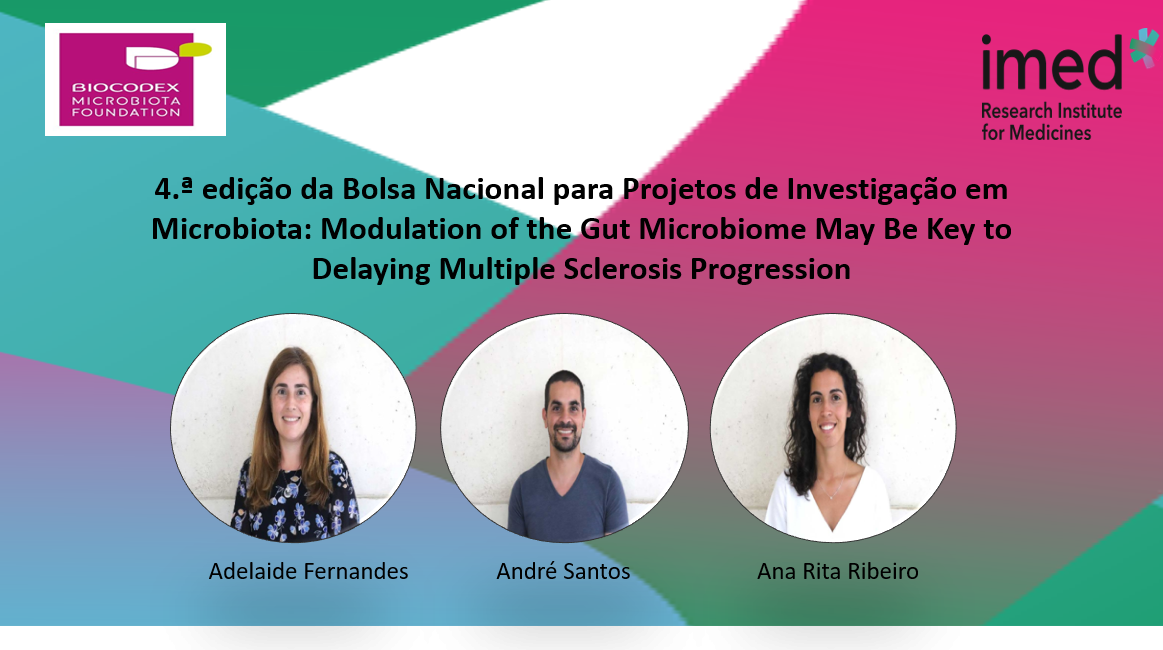July 28, 2023
Modulation of the Gut Microbiome May Be Key to Delaying Multiple Sclerosis Progression

A team of researchers led by Adelaide Fernandes,will investigate new ways of clinical intervention in multiple sclerosis, a chronic autoimmune neurodegenerative disease, which is the leading cause of non-traumatic neurological disability.
The research project, entitled “Manipulation of the microbiome to reduce psychopathology in multiple sclerosis” is the winner of the 4th edition of the National Scholarship for Microbiota Research Projects, awarded by the Biocodex Microbiota Foundation, and will be developed over a year and a half, under a funding award of 25 thousand euros. This research team also includes André Santos and Ana Rita Ribeiro.
According to Adelaide Fernandes, the researchers will “modulate the intestinal microbiome of mice through fecal transplantation to evaluate the improvement of the pathogenesis of the disease and psychopathological symptoms”. The goal is to achieve symptom relief and reduction of disease pathogenesis, “which may be a first step towards improving the quality of life of MS patients by slowing or stopping disease progression”.
Adelaide Fernandes also explains that “although it mainly affects young adults, the age of onset of the disease is a determining factor of worse relapse episodes with a faster progressive course and loss of therapeutic efficacy”.
Patients with multiple sclerosis, despite neurodegenerative symptoms, also present cognitive impairment, anxiety and depression, which have an impact on the progression and pathogenesis of the disease. Animal studies confirm that age is a predictor of worse disease progression accompanied by greater accumulation of health deficits as measured by the frailty index.
Several clinical and preclinical studies are now beginning to unravel the relevance of the interaction between the gut microbiome and the nervous system in autoimmune diseases such as multiple sclerosis. However, there are still many gaps that the awarded research will explore, such as the age-related change in the microbiome and its impact on the onset and progression of symptoms.

